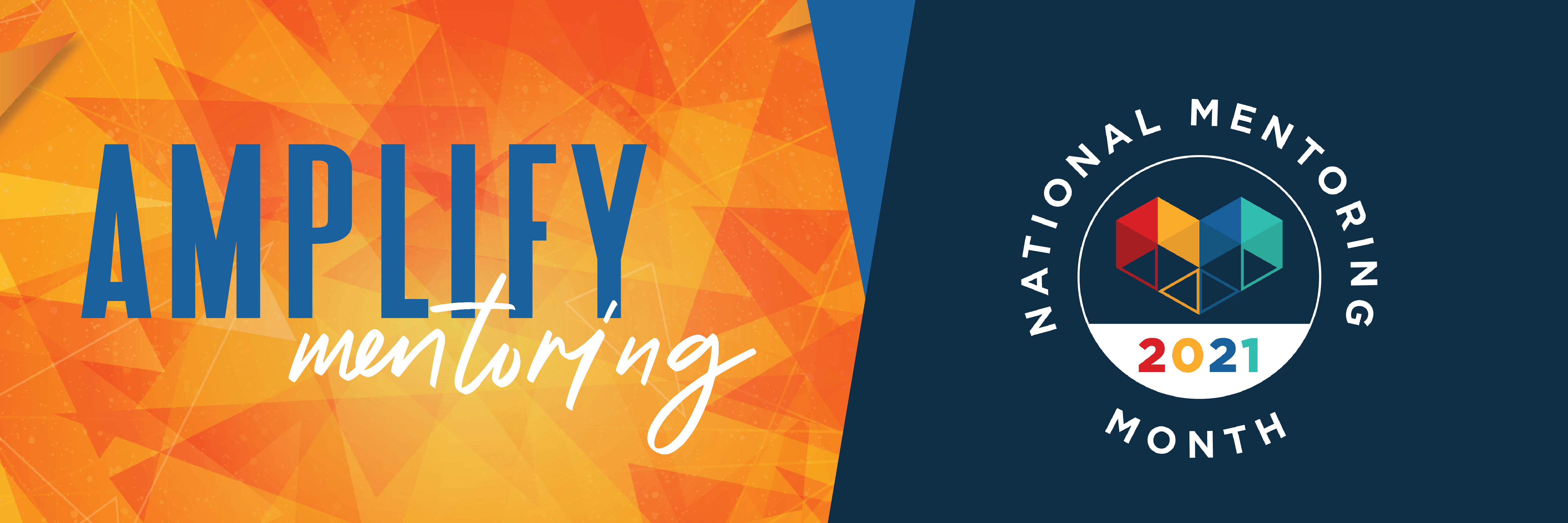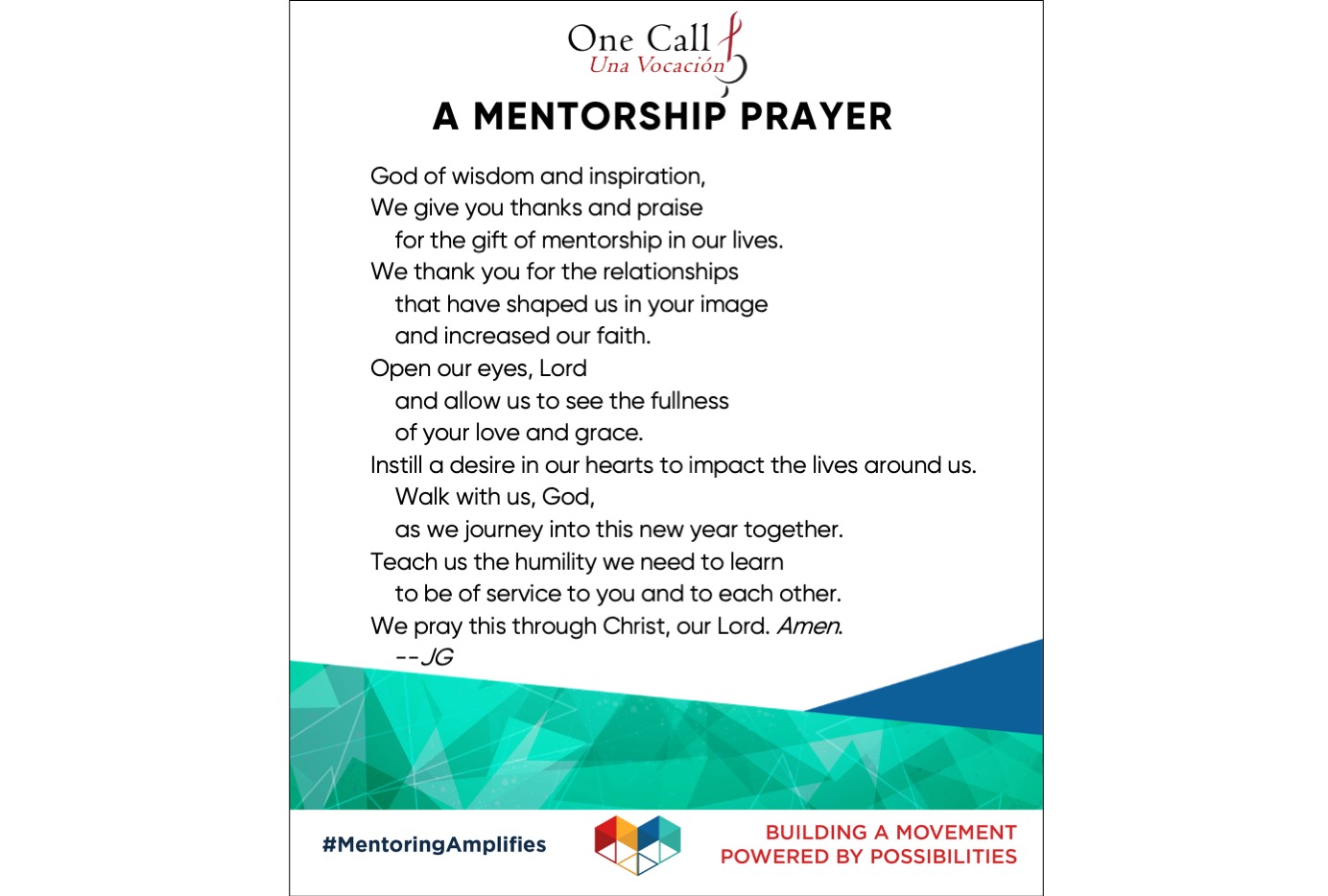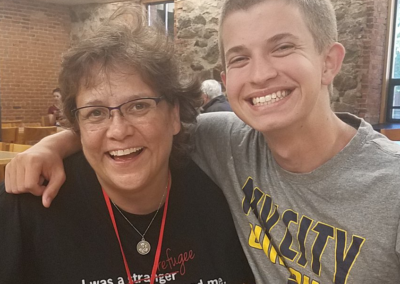
January is National Mentorship Month. This article is part of a collaboration between GIA and the One Call Institute. Learn more about OCI below.
Without a doubt there are many throughout my life I would consider a mentor. Mentors play a critical role especially for young people, yet according to MENTOR (mentoring.org) more than 1 in 3 young people were found to never have had an adult mentor of any kind in their life. Why is this important? What is mentoring and what role does it play in the Church? Throughout January we will take a look at these questions and more as we celebrate National Mentoring month.
Mentoring is a relationship between a mentee and a person whom they see as experienced with knowledge and wisdom to pass on in a way that adds value to the mentee. Simply put, it is a relationship between the mentor and the mentee. For the purposes of today, we will focus on mentoring relationships of an adult mentor with a mentee that is a young person.
Mentoring can be formal or informal in how it begins and the structure of the relationship. When you hear the term mentoring you may think of structured programs like Boys & Girls Clubs of America. This program and programs similar to it would be considered formal mentoring as there is a matching process that bring the mentor and mentee together and provides a structured relationship. What we see most often in the Church is informal mentoring. This consists of a relationship that is formed organically such as meeting at church events like choir, youth group, or catechism classes. Youth often see inspiring teachers, coaches and family friends as mentors.
Much about mentoring in the church can be gleaned from the Final Document of the Synod of Bishops: Young people, the faith, and vocational discernment. Using the journey to Emmaus (cf Lk 24:13-35) as a model text for mentoring like the bishops did for the synod allows us to see a paradigm of mentoring within the text. At the start Jesus is walking with the two disciples who have not comprehended what happened to him, while they are moving away from Jerusalem. As Jesus walks with them he asks questions and listens attentively to their version of events as a means to help them recognize what they are experiencing. As the passage goes on he share the Word with them, helping them process the events they have experienced through the scriptures. He sets a fire burning in their hearts and in the end the two disciples choose to resume their journey to return to their community. This synod document is full of insights and recommendations based on discussion had between the bishops and young people.
Now that we know a little more about what mentoring is, let’s talk about the impactful benefits of mentoring both for the mentee and the mentor! The below benefits are all documented through various organizations. The level of impact for the youth varies on a number of factors including the effectiveness of the mentor relationship, the length of the relationship, the young persons economic background, and family dynamics.
Benefits of mentoring for youth:
- Develop knowledge, skills and experience
- Improved academic performance including higher graduation rates
- Higher college enrollment rates and career aspirations
- Healthier relationships and improved interpersonal skills
- Increased self-awareness, enhanced self-esteem and confidence
- Those who have mentors as young people are likely to become mentors as adults, continuing the cycle of mentorship
- Specific to a church setting – increased spirituality, participation and longevity with the church
While the mentoring relationship is designed for the mentor to impart knowledge and wisdom to the mentee, my personal experience, the experience of the mentors I have spoken too, and the research shows then mentor will also see great benefits from the relationship. One of the perks for the mentor is that often those benefits apply across all aspects of their life including family relationships, faith, and professional development.
Benefits of mentoring for the mentor:
- Leadership skills – developing your ability to motivate and inspire others
- Effective communication – tailoring your message to your mentee’s experience and background
- New viewpoints – working with someone with different experience and from different backgrounds can help you gain a new perspective and challenge the way you view things
- Personal satisfaction – knowing you have contributed to the growth of a young person can be very fulfilling
- Future of the church – we continue to see a decline in the younger generation’s participation in the church as they mature into adulthood; helping them increase their faith and spirituality is vitally important to the future of the church
The impact mentoring can have – on the mentee, the mentor and society – is beyond measure! Throughout this month we will give thanks for the mentors in our own lives, share stories of mentorship and dig into how you can become and improve as a mentor.
As we celebrate mentor month we ask that you pray with us:


Jes Garceau
One Call Institute
A co-director of the One Call Institute, Jessica Garceau has worked for the Target Corporation in Minneapolis, MN for the past 10 years and resides in Roseville, MN. In the fall of 2019 Jes completed her Masters of Arts in Organizational Leadership at St. Mary’s University of Minnesota focusing much of her studies on mentorship and change management. Jes loves music and throughout the years has been part of numerous choirs and ensembles both in the church and beyond.








Recent Comments